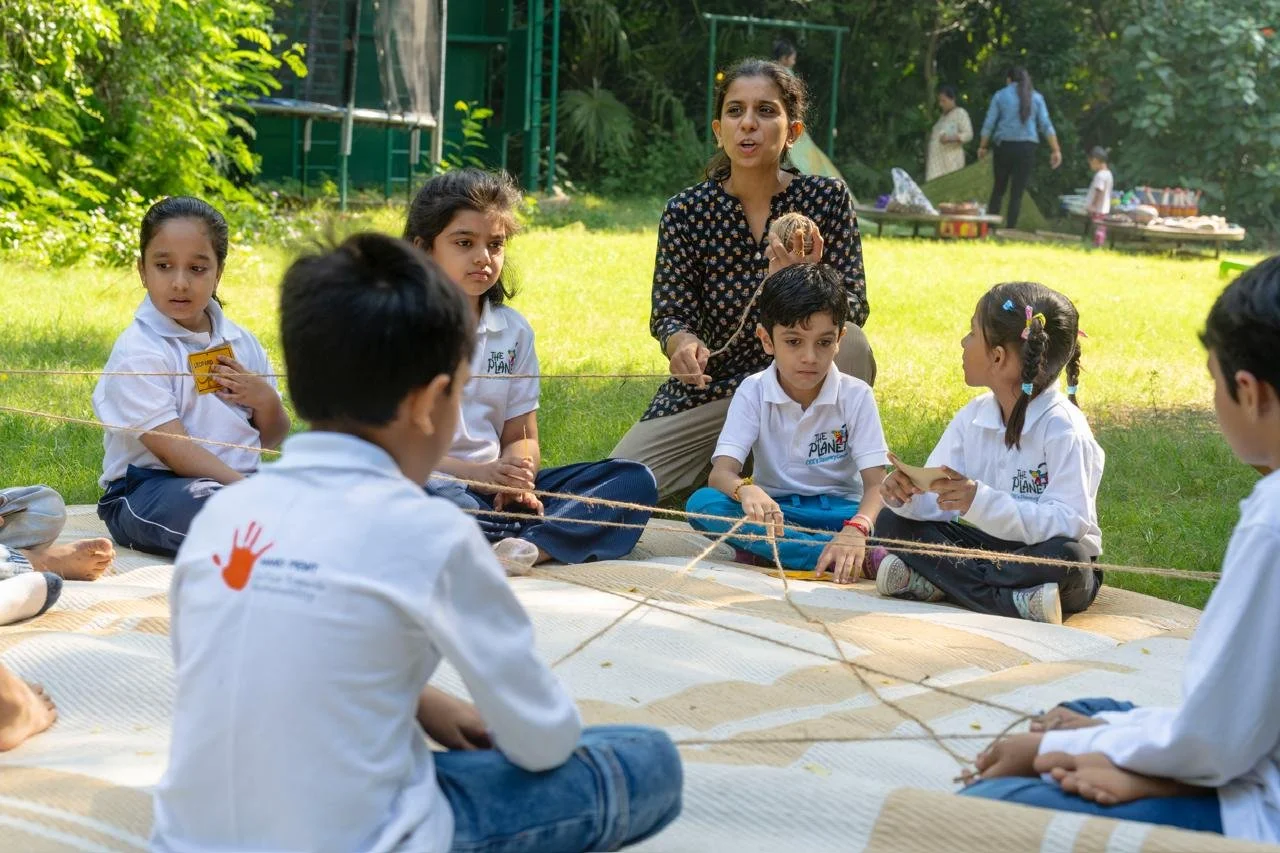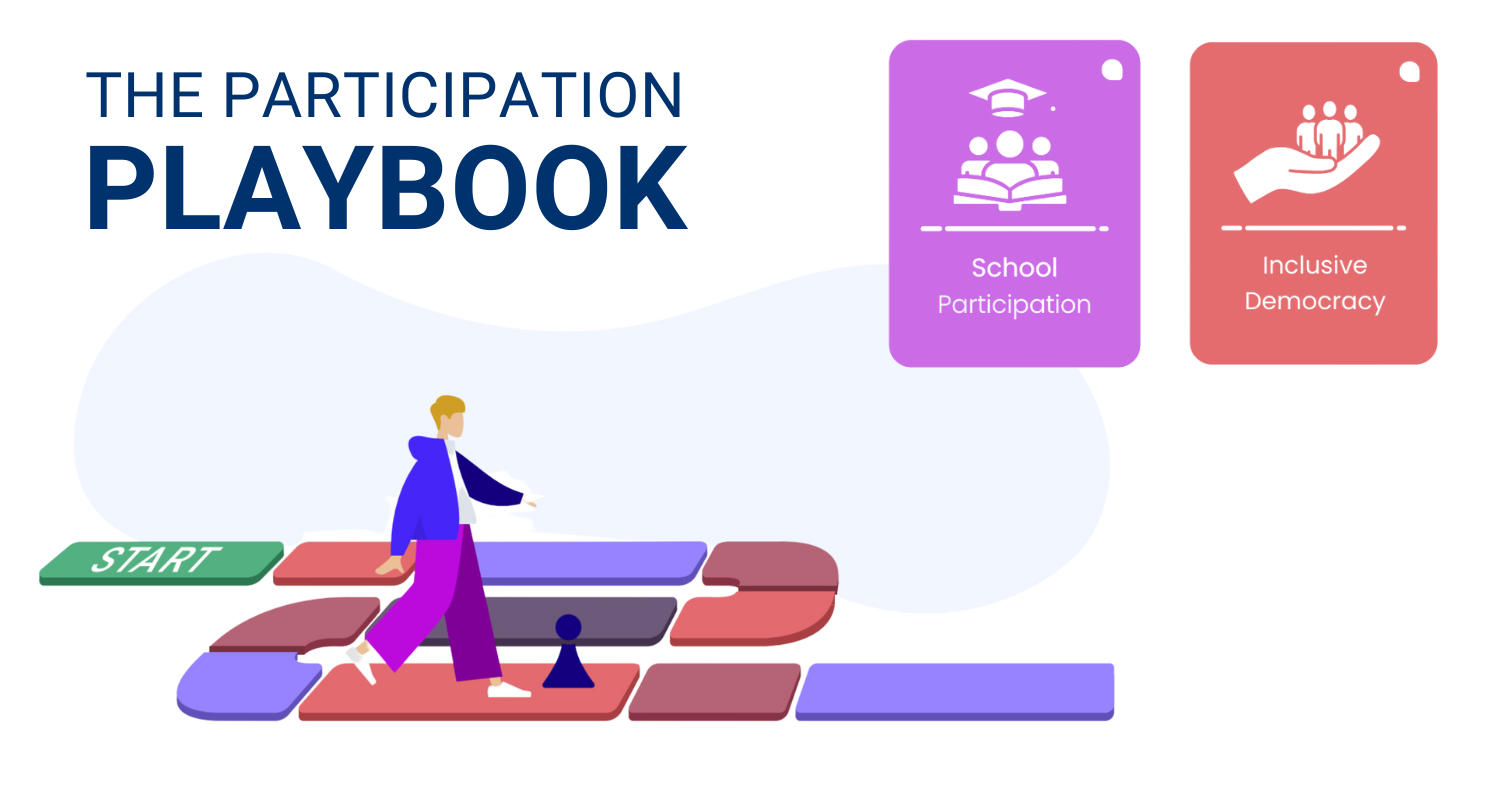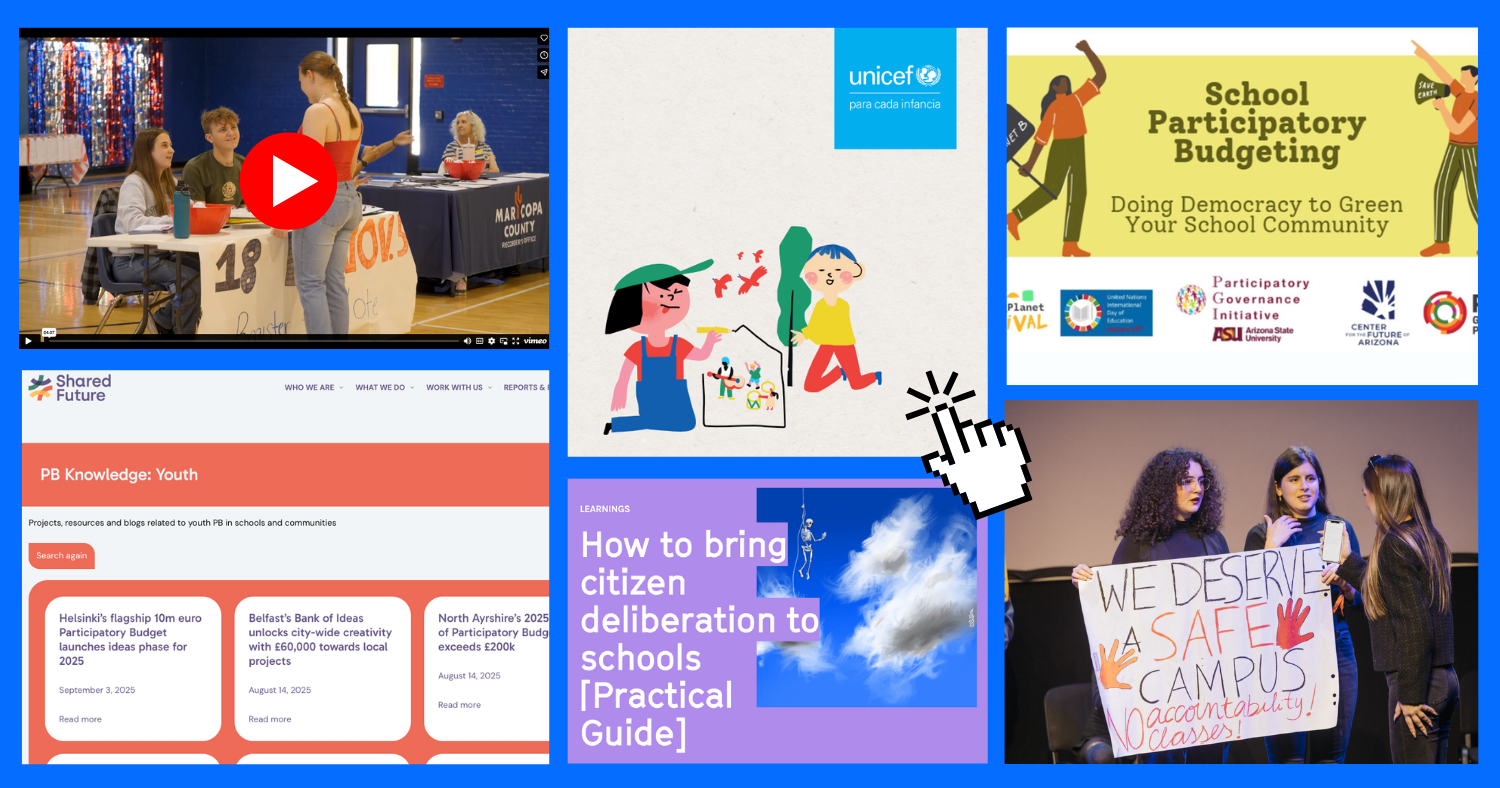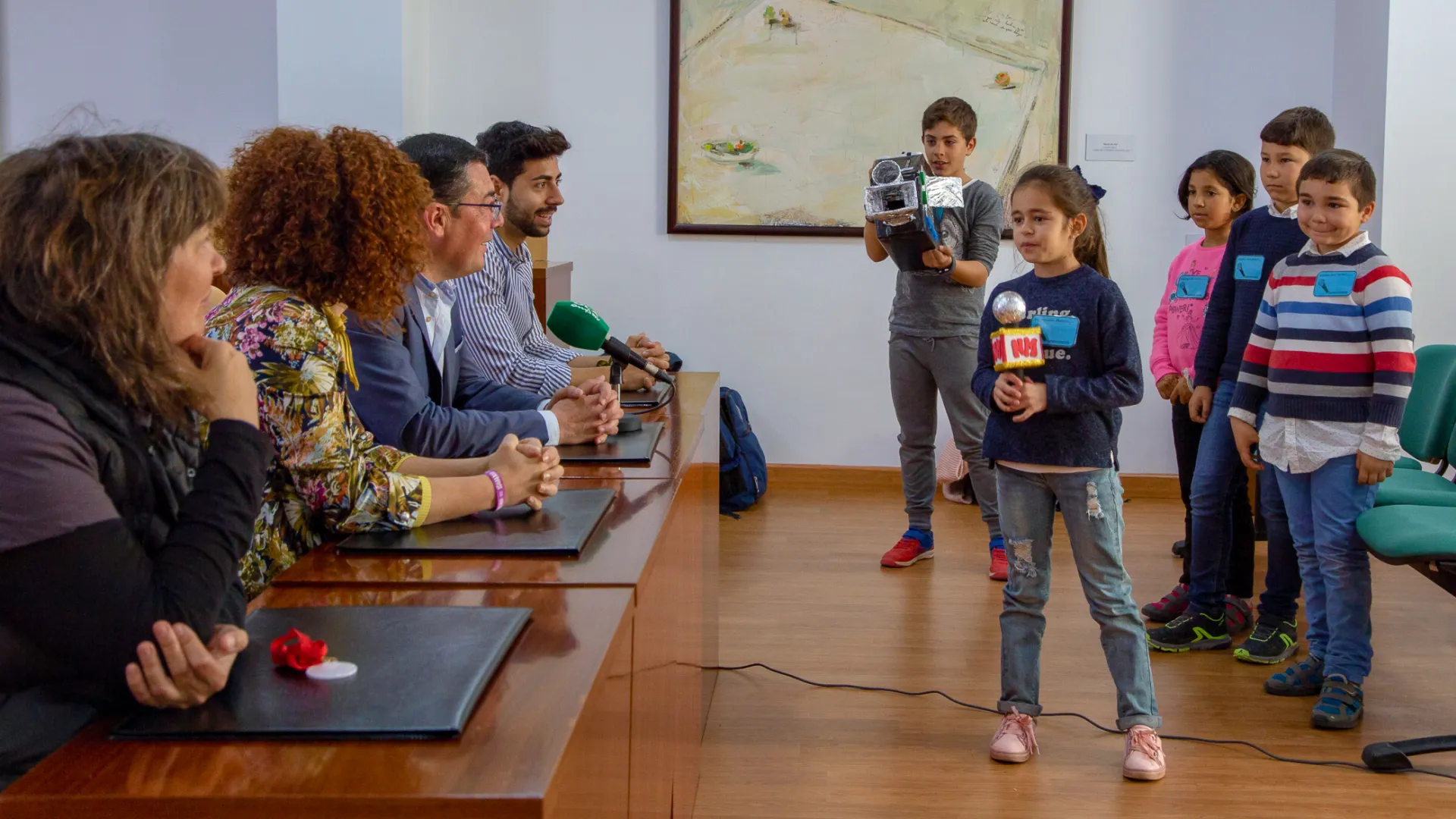School participation: Practical resources to develop active citizens and stronger communities
/Image courtesy of CEE.
As the most challenging issues of our time — from climate change, to technology’s impact on well-being, to violent conflict — accelerate, schools around the world are experimenting with novel models of governance, deliberation and collaboration to engage children and youth in the decisions that will shape their present and future. Participation in schools can develop active citizens with lifelong habits of participation, strengthen school communities, and encourage engagement in local government.
Even as schools become laboratories of democracy in a growing number of countries, it remains difficult for school administrators, teachers and civil society organizations to find relevant guidance on student participation. But practitioners need not reinvent the wheel when pursuing innovations like participatory budgeting, citizens’ assemblies and legislative theater: They can learn from experiences and best practices of school participatory programs around the world. To meet this need, People Powered has developed a suite of practical materials on school participation, including step-by-step guidance, research insights, sample materials and other helpful resources.
Laboratories of Democracy
Watch our global launch of the new school participation resources where we explored case studies and best practices alongside innovators from India, Brazil, Spain and beyond!
Hands-on guidance based on global research and practice
1. Step-by-step guidance
With Coglobal, we developed school-specific tracks of the Participation Playbook, an interactive website that guides users through the key decisions necessary to successfully advocate for and implement participatory programs. With the new content, you’ll be able to develop action plans for school citizens’ assemblies, participatory budgeting, legislative theater and participatory policymaking. The tracks are already being used by the current cohort of the Democratic Innovations Accelerator.
2. Impact data
With the People Powered research committee, we surveyed the global literature on the impacts of participation in schools. After examining more than 35 peer-reviewed journal articles and book chapters, we synthesized 11 key findings organized in three groups — impacts on people, communities and governments — and accompanied by practical recommendations. Advocates can use this data to win support for school participation programs. The insights are available as a research brief (PDF) and an interactive Airtable.
3. Practical resource collection
The new guidance and research insights that we developed contribute to a growing body of practical resources — lesson plans, guides, toolkits and sample materials — created by school participation practitioners around the world. We’ve curated the most useful materials and gathered them in our online resource center so that you can benefit from the creativity and expertise of your peers. To access them, use the filter “Institution: School.”
How the resource package came to life
Image courtesy of Coglobal.
These resources are the fruit of one of the projects prioritized by the global participatory democracy community in last year’s edition of PP Decides, People Powered’s annual member decision-making process. Practitioners and researchers working in countries around the world identified a need for improved guidance on participatory and deliberative practices in schools. To implement the project, we collaborated with Coglobal to develop the Playbook tracks, organized co-creation workshops with members, gathered feedback from partners, and convened an expert committee to guide the process.
Learn more about school participation expert committee ⬇️
Alberto Ford
Department of Political Science and International Relations, National University of Rosario | Rosario, Argentina
Alberto is a professor and researcher who is particularly interested in the connections between inclusion, equity, deliberation, and creativity in concrete participatory policies. Alberto has helped organize an international conference on citizenship learning and participatory democracy in Rosario 2010. He has conducted research on Participatory Budgeting in Rosario, strategic participatory planning in Santa Fe, and the linkages between creativity and politics. He has published several books and articles on these issues.
Aleksandra Ilijin
OPENS and BalkanIDEA | Novi Sad, Serbia
Aleksandra works as a senior consultant for a program within OPENS, a Serbian NGO that runs school participatory budgeting (PB) in Novi Sad and advocates for young people to be equally involved in the country’s decision-making processes.
As a leader of the program team, Aleksandra has helped develop a participatory budgeting program in 11 high schools in Novi Sad. Currently, her focus is on developing a youth participatory budgeting program and incorporating PB into local and national youth strategy documents.
Aleksandra has dedicated her professional career to youth participation and activism with the motto: “The world belongs to everyone equally, and it only makes sense to provide to each citizen, young or elderly, a chance to contribute to its governing.”
Sanskriti Menon
Centre for Environment Education | Pune, India
Sanskriti serves as senior programme director at the Centre for Environment Education, India, which was founded as a centre of excellence of the Ministry of Environment Forest and Climate Change. Anchors CEE’s Urban Programmes and mentoring the Coast and Marine Programme at CEE, she has experience in school-based environment education, and with issues of city life, like traffic, waste, water and biodiversity. As a Member of the Board of Directors of the Foundation for Environmental Education, Denmark, Sanskriti has the opportunity to support its global programmes.
Tara Bartlett
Arizona State University | Tempe, United States
Tara Bartlett is a Clinical Assistant Professor at Arizona State University's Mary Lou Fulton Teachers College. Her research and teaching interests focus on public policy and democratic innovations, particularly among youth and within school communities. In her work, Tara draws upon frameworks of citizenship education, school democracy, and participatory governance and utilizes methods such as community-based research (CBR) and participatory action research (PAR). Tara’s focus on these areas is driven by her experience and passion for integrating opportunities for youth and families to participate in school community decision-making processes, policy creation and adoption, and community empowerment initiatives.
Before pursuing a doctoral degree, Tara was a public school educator for 14 years in Arizona Title I middle schools. Through various education leadership roles, Tara has been integral in developing and providing training for social studies standards and district curriculum, elevating civic learning initiatives, and facilitating professional development opportunities for fellow educators. Additionally, Tara has experience working on both small and large-scale civic education projects in Arizona, across the US, and internationally.








